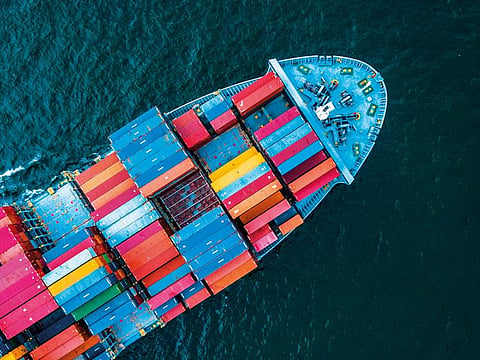Trade ties that endure
As a crucial gateway for commerce, the UAE is a compelling partner for Asian economies

Asian countries hold an important place in the UAE’s international relations, accounting for 40 per cent of the Emirates’ global trade. Much of this trade relates to hydrocarbon exports and the UAE is seeking to diversify this cooperation into other areas as it looks to secure its post-oil future.
There has been considerable focus in recent years on strengthening ties with China, which is rapidly closing in on the US to become the largest economy in the world. Beijing is also building a trade and logistics corridor — a global network of ports, roads and railways — through Central and South Asia, Africa and on to Europe that promises to transform global trade in the years to come. The Belt and Road Initiative, as it is known, will cement China’s position as a dominant power in the world, and the UAE, naturally, is keen to have a close involvement. In July 2018, Chinese President Xi Jinping paid a three-day visit to the UAE, the first by a Chinese head of state in 28 years.
During his stay, the two countries agreed to enhance cooperation in all fields, including transport and logistics, industry, technology, artificial intelligence, energy, renewables and food security.
China is already the UAE’s leading import partner, after the EU bloc: non-oil foreign trade between China and the UAE amounted to $53.3 billion in 2017, a figure that is expected to grow to $70 billion by 2020. In addition to increasing petrochemical exports to the country, the UAE hopes to become a major transhipment centre in China’s logistics corridor. Dubai’s Jebel Ali port is already a well-established gateway to Europe and Africa for Chinese exports, with its free zone home to more than 230 Chinese companies, and Abu Dhabi is now looking to replicate its success.
While China is the largest source of imports, the UAE’s biggest single market for non-oil exports is India. The trade largely comprises sales of gold, jewellery and copper wire, and re-exports of diamonds. The UAE, meanwhile, is India’s fourth-largest trading partner. The relationship between the two has built up over several generations and many of the 2.6 million Indians who call the UAE home have played an instrumental role in establishing the country. It is no surprise then that the past couple of years have also seen high-level visits between the UAE and India as the two nations seek even closer ties, and the country continues to pursue its pivot towards the East.
While China’s priority is building trade routes and export markets, India is looking for investors to make up for decades of underspending on infrastructure. For the UAE, it is an opportunity to take its experience in developing world-class infrastructure overseas. Areas of potential cooperation include roads, railways and airport projects, as well as real estate developments. With the UAE heavily reliant on food imports, the potential for increasing agricultural exports and executing joint projects in the food processing sector are also being explored.
The head of the UAE’s other main Asian trade partner, Japan, also paid a visit to Abu Dhabi last year. Prime Minister Shinzo Abe discussed the potential for cooperation in defence, health, technology, education and the financial sector. The UAE is the second-largest supplier of oil to Japan while 60 per cent of Japan’s exports to the UAE are vehicles.
Apart from the big three, the UAE is looking to expand trade ties with the booming hubs of Southeast Asia such as Indonesia, Singapore and Malaysia. The UAE was Singapore’s largest trading partner among the GCC countries in 2017 with bilateral trade amounting to nearly S$17 billion ($12.5 billion).
In 2018, the UAE and Indonesia signed an agreement to harmonise standards for halal products in a concerted effort to increase trade to $5.5 billion from $3.3 billion. As the UAE accelerates towards becoming a diversified, knowledge-based economy, the opportunities for bilateral trade to expand into new areas will evolve.
The government has identified clean energy, transportation, education, healthcare, water, technology and space to promote its overall economic and social position, and diversify its national income based on a sustainable and knowledge-based economy.
As the fourth Asian country to have commercial space capabilities after India, China and Japan, last year was a big year for the UAE’s space programme, with the launch of two satellites and announcement of plans to send the UAE’s first astronauts into space. Bigger plans are to follow, with the launch of the Mars Mission that will send an orbiting probe to the planet in time for the UAE’s 50th anniversary in 2021.
The UAE is also set to lead the region’s contribution to the development of new technologies such as precision medicine, artificial intelligence and blockchain after an agreement with the World Economic Forum in January to set up a research centre in Dubai.
Today, the UAE has much more to offer than just oil exports; it has capital and global expertise in transport and logistics, solar energy, aviation, real estate, financial services, tourism and other sectors. For the emerging economies in Asia, the UAE is a compelling partner.
To view the digital version of the ABLF-Gulf News Magazine, click here



